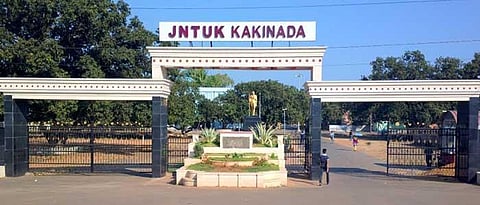

VIJAYAWADA: Jawaharlal Nehru Technological University-Kakinada (JNTUK) is set to overhaul engineering education in the State to address a long-standing skills gap that has left graduates underprepared for modern industry demands. The university, which has approximately 2.2 lakh students enrolled across 160 affiliated colleges, is implementing a new strategy to align its academic programmes with real-world industry needs.
JNTUK vice-chancellor Dr KVSG Murali Krishna is leading the initiative, aiming to provide students with hands-on experience and practical knowledge to bridge the gap between academia and industry. As part of this effort, the university is incorporating international student and faculty exchange programmes, practical learning, and fostering innovation and entrepreneurship.
He, along with a JNTUK delegation, recently visited Hyderabad’s prominent innovation hubs, T-Hub and T-Works, to gain insights on how the university can address the skill gap. Following the visit, the university is planning to set up incubation centres in its affiliated colleges to nurture innovation and entrepreneurship.
Krishna said, “Our students need real-world exposure, not just textbooks. We are planning a student exchange programme across all 160 affiliated colleges to provide this.”
T-Hub also suggested launching mentorship programmes that would connect students with industry experts, giving them the practical guidance they often lack in traditional academic settings. They proposed integrating entrepreneurship courses into the core curriculum and organising innovation challenges to encourage creative problem-solving.
Inspired by T-Works, JNTUK also plans to set up mini prototyping labs across its main campus and affiliated colleges to offer students hands-on experience in product development. The university is also working to establish partnerships with local industries to enable knowledge exchange and resource sharing, ensuring students have direct exposure to real-world projects.
“By adopting these practices, we can bridge the skill gap and prepare our students for tomorrow’s challenges. We are not just tackling today’s issues, we are building a future-ready workforce,” V-C Murali Krishna added.